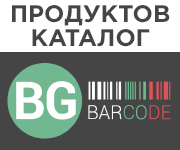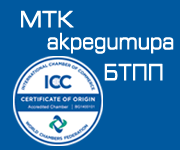Bulgarian businesses’ assessment of the need to initiate measures to limit the negative consequences of COVID-19 for the business community
In the period 18-23 March 2020, the Bulgarian Chamber of Commerce and Industry conducted an express online survey on the required measures to limit the negative impact of the COVID-19 pandemic for the Bulgarian business. More than 300 companies and branch organizations took part in it and shared their opinions.
At the beginning of the year, the business community had a positive outlook for the development of the business climate in the country, and was even more hopeful for the results to be achieved in 2020 in comparison to the previous year. Now, the situation has changed and requires amendments to be made and measures to be taken to mitigate the adverse effect on the state of the business.
The results of BCCI’s survey show that after the state of emergency was announced in the country, in 48% of companies the standard working hours have been kept, but stricter hygiene and sanitary measures are being maintained; 38% of companies have allowed their employees to work from home, and 12% of companies closed for various reasons – because of the declared state of emergency or lack of orders. Around 23% of employers have put their staff or part of their staff on paid leave, while 18% of companies – on unpaid leave.
Businesses are adapting, looking for various work opportunities and flexible forms of employment, but this is not possible in every company. In fact, there are a number of companies that combine all of the above options, allowing their employees to work on a rotating basis (in teams), because of the reduced number of orders, the inability to supply raw materials and the blocked transportation system. Customer service is limited to a minimum, while some companies concerned about the health of their oldest employees have put them on leave.
The most important and urgently needed measure for businesses now is the guaranteed movement of goods and raw materials across the trans-European corridors in order not to impede the export and import of goods, according to 96% of companies. This is an essential element for the normal functioning of the economy of the country. Last but not least, given the difficulties associated with road transport, there is an unused opportunity which both companies, and especially the state, should focus on – making full use of the railway transport system which is under the control of the state.
Secondly, more than 90% of companies say that the state should shorten the deadlines for paying the business, make immediate payment of overdue debts, and open a hotline for signals from the business community.
The state support in the amount of 60% of the employees’ remuneration for a period of 3 months for companies whose activity has been proven to be affected by the virus, is also one of the important elements that will allow companies to keep their employees in these uncertain times.
The business also points out that the deadlines for payment and declaration of taxes and social securities should be extended – measures in this regard have already been taken – the deadlines for the preparation of the annual accounts of companies and for filing of the annual declarations under the Corporate Income Tax Act have been extended until the end of June 2020. About 92% of companies also support, as a measure, the accelerated assessment and simplified criteria when applying for EU funding.
The survey also highlights the various obstacles faced by small and medium-sized enterprises - the payment of rent for the premises SMEs use when they have no income or have closed during the state of emergency; the payment of municipal waste tax by restaurants, hotels and other catering establishments which are currently closed, for which the Association of the Organizations of Bulgarian Employers has already sent a very detailed signal to the Prime Minister with a proposal to eliminate part of the municipal waste tax for the period in which the respective companies do not function.
Companies will try to keep their employees to the greatest extent possible by optimizing their costs, by using the option of 60% state support in paying employees’ salaries. Some companies will try to benefit from the advantages of online trade more actively, while others will cover the losses they will suffer in order not to lay off staff. There are also companies reporting that if the situation with COVID-19 does not improve, there will be cuts in staff.
An interesting conclusion can be drawn that the expectations that for some companies the crisis is a challenge but for others it is an advantage are grossly exaggerated. The two categories cannot be compared because just under 1% of companies expect a positive effect on their business.
There is also a positive side of the situation for all entrepreneurs. Everyone has started optimizing their costs, which is an investment in the future. Many of the employers have realized that they can handle the workload with fewer employees and this is also an investment in the future.
Още новини:
-
26-03-2020
-
25-03-2020

 1 USD =
1 USD =  1 GBP =
1 GBP =  1 CHF =
1 CHF =  ISO 9001:2015
ISO 9001:2015




























